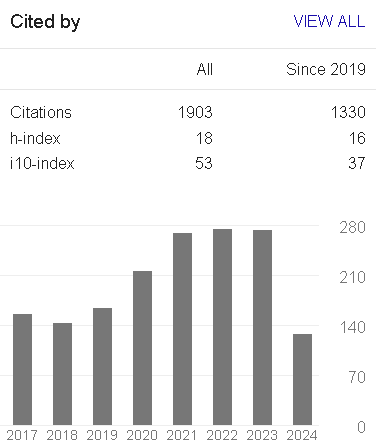QUANTUM-ENHANCED EDGE COMPUTING FOR REAL-TIME DATA PROCESSING IN AUTONOMOUS SYSTEMS
Keywords:
Quantum Computing, Edge Computing, Real-Time Data Processing, Autonomous Systems, Hybrid Computing ArchitecturesAbstract
The proliferation of Internet of Things (IoT) devices and autonomous systems has necessitated advancements in real-time data processing capabilities. Edge computing addresses latency and bandwidth issues by processing data closer to the source. However, traditional edge computing approaches struggle with the computational demands of complex algorithms, especially in autonomous systems. This paper introduces a novel approach that leverages quantum computing principles to enhance edge computing frameworks. We propose a hybrid architecture combining quantum-enhanced processing units with classical edge nodes to optimize real-time data processing. Our results demonstrate significant improvements in processing speed and efficiency, making this approach viable for deployment in autonomous vehicles and smart city infrastructures.
References
. Nielsen, M.A., & Chuang, I.L. (2010). Quantum Computation and Quantum Information. Cambridge University Press.
. Shi, Y., & Lu, Q. (2018). Edge Computing: A Survey on the State of the Art and Future Directions. IEEE Access, 6, 13-29.
. Arute, F., Arya, K., Babbush, R., & Bacon, D. (2019). Quantum Supremacy Using a Programmable Superconducting Processor. Nature, 574, 505-510.
Downloads
Published
How to Cite
Issue
Section
License
Copyright (c) 2021 COMPUSOFT: An International Journal of Advanced Computer Technology

This work is licensed under a Creative Commons Attribution 4.0 International License.
©2023. COMPUSOFT: AN INTERNATIONAL OF ADVANCED COMPUTER TECHNOLOGY by COMPUSOFT PUBLICATION is licensed under a Creative Commons Attribution 4.0 International License. Based on a work at COMPUSOFT: AN INTERNATIONAL OF ADVANCED COMPUTER TECHNOLOGY. Permissions beyond the scope of this license may be available at Creative Commons Attribution 4.0 International Public License.


